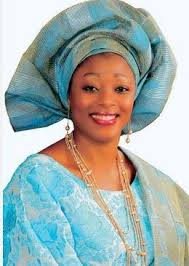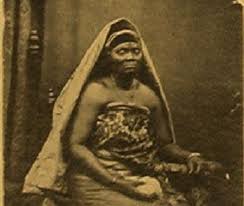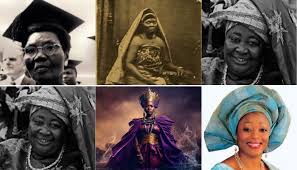Meet Yoruba Women that shaped Nigeria’s Pre-Independence; The journey to Nigeria’s independence is often narrated through the lens of prominent male figures, but the contributions of Yoruba women are equally monumental and deserving of recognition. These remarkable women played crucial roles in the socio-political landscape of pre-independence Nigeria, advocating for education, women’s rights, and political inclusion.
1. Funmilayo Ransome-Kuti (1900-1978)

Funmilayo Ransome-Kuti, often referred to as the “Lioness of Lisabi,” was a formidable force in Nigeria’s fight for independence. A pioneering educator and activist, she founded the Abeokuta Women’s Union (AWU) in the 1940s. The AWU fought against colonial taxation and demanded better living conditions for women. Her activism extended to the national stage, where she became one of the founders of the Nigerian Union of Women’s Societies and played a significant role in advocating for women’s suffrage.
2. Efunroye Tinubu (c. 1810-1887)

Madam Efunroye Tinubu, a powerful businesswoman and political leader, was instrumental in shaping Lagos’s economy and politics. She leveraged her wealth and influence to resist British colonial policies and support the indigenous population. Her legacy includes significant contributions to trade and commerce in pre-colonial and colonial Nigeria, and she remains a symbol of entrepreneurial spirit and resistance against colonial oppression.
3. Hajia Sawaba Gambo (1933–2001)
Though not exclusively from the Yoruba ethnic group, Hajia Gambo Sawaba had Yoruba roots and was a prominent activist. She was a politician and women’s rights advocate who worked tirelessly for social justice and the empowerment of women. She joined the Northern Elements Progressive Union (NEPU) and was known for her fearless stance against colonial and traditional authorities, advocating for women’s education and participation in politics.
4. Chief (Mrs.) Olufunmilayo Adunni Olayinka (1951–2013)

Though her prominence was more pronounced post-independence, Chief Olayinka’s efforts in education and civil service during the late colonial period helped set the stage for her later achievements. She was deeply involved in community development and women’s advocacy, contributing to the foundation of structures that supported women’s roles in governance and public service.
5.Efunsetan Aniwura:
A wealthy and influential Yoruba merchant and political figure in 19th-century Ibadan, celebrated for her business.
6. Oya, the Yoruba Goddess:

A powerful deity in Yoruba mythology, associated with storms, change, and transformation, often invoked by women in pre-independence Nigeria for strength and inspiration.
7. Oyinkansola Abayomi
Oyinkansola Abayomi was a dedicated educator and women’s rights activist. She founded the Women’s Improvement Society, which focused on educating women and encouraging their participation in public life. Abayomi’s efforts were instrumental in promoting the education of women and their involvement in socio-political activities during the pre-independence era.
Related news, Read Also: https://www.youtube.com/watch?v=crVGQCdopgU
The Legacy of Yoruba Women in Nigeria’s Independence Movement
The contributions of these pioneering Yoruba women are a testament to their resilience, courage, and unwavering commitment to
justice and equality. Their efforts not only advanced the cause of Nigerian independence but also paved the way for future generations of women to take active roles in the country’s socio-political development.
Their legacy continues to inspire contemporary movements for gender equality and women’s rights in Nigeria. By remembering and honoring these trailblazers, we acknowledge the indispensable role of women in shaping the nation’s history and future.
Read Also: https://placesandlifestyle.com/funmilayo-ransome-kuti-a-journey-of-trials-and-triumphs/




